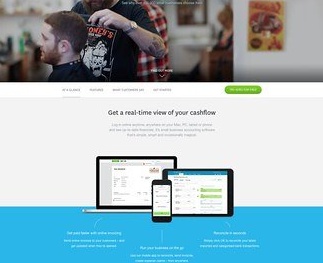In this article, we look at how to start a marketing agency – the right way.
Starting your own marketing agency can be a rewarding endeavour, but doing it right is crucial to the success of your organisation. With years of experience in helping entrepreneurs start businesses in a variety of industries, we have the knowledge and expertise to guide you through the process.
The First Steps
Here are the first steps you should take when starting your marketing agency:
- Market research: Who are your competitors? What’s the demand like in your chosen niche? These insights will inform your strategies and help you identify gaps in the market that your agency can fill.
- Define a niche: If you want a successful marketing agency, standing out is key, and finding a niche is a good way to give you a headstart. Find a specific sector or service you excel at and aim to become the go-to expert in that area.
- Create a business plan: This is your blueprint for success. Your business plan should outline your mission, vision, target market, competitive landscape, financial projections, and marketing strategies. Download our free business plan template to help you along!
Remember, thorough preparation mitigates future risk, and implementing these first steps when you decide to start a marketing agency can save you from a lot of headaches in the future.
Legal and Financial Preparations
Here are the basic legal and financial preparations you need to consider when starting your marketing agency.
Chose Your Business Structure
One of the first decisions you’ll need to make on your journey to start a marketing agency is choosing the right business structure. This decision will impact various aspects, including your tax obligations, legal liabilities, and potential for growth. The common structures to consider are:
- Sole trader: Trading in your personal name. Ideal for those looking to have a simple structure that is cheap to set up but with the risk assuming all legal and financial responsibilities.
- Partnership: If you’re looking to collaborate with someone, a partnership could be advantageous. However, be prepared for shared legal and financial responsibilities.
- Company: This structure offers liability protection and a lower tax rate of 25%, , but it comes with more complex tax and legal obligations. Bear in mind that if you choose this structure, you will need a Director Identification Number.
Find out more about establishing the right business structure.
If you want to get started easily and cheaply, then you can first set up as a sole trader and then convert to a partnership or company later. Check out our PDF guide on how to convert from a sole trader to a company, including the potential tax issues.
Tax and GST Basics
Tax obligations are an inescapable part of running any business, and when you’re figuring out how to start a marketing agency, understanding tax basics is crucial. Here’s what you need to know:
- Registering for GST: If your annual revenue is expected to exceed a certain threshold, you’ll need to register for Goods and Services Tax (GST). This involves charging your clients an additional percentage on your services and reporting it to the tax office. Find out more about registering your business.
- Basic tax liabilities: As a business owner, you’ll be responsible for various taxes, such as income tax, corporate tax, and payroll tax for any employees you hire. Learn how to keep up with tax payments.
- Deductions: There are numerous tax deductions available to businesses, like business-related expenses and home office costs. Make sure to take advantage of these to reduce the amount of tax you pay.
Understanding tax and GST is a complex task, and staying on top of it can help avoid any tax or financial troubles in the future.
Finding Your First Clients
Once you’ve taken care of your legal and tax obligations, it’s time to start building your client-base. The best starting place to find your clients is your existing network. Build upon the relationships you already have and don’t be afraid to ask for referrals. Other ideas to build a client base include:
- Online marketing: Implement the skills you plan to offer to your clients. Use SEO and digital advertising to make your agency visible to potential clients searching for marketing services. Create a useful tool for potential clients and push it out via social media.
- Direct Engagement: Use your network of former clients and directly engage or re-engage with them. Even if they have changed roles or firms, it never hurts to reconnect.
- Freelance platforms: Websites like Upwork and Freelancer can be good places to start, allowing you to build a portfolio and get testimonials.
- Offer free work: Although not sustainable in the long term, offering your services for free or at a discounted rate can be a good strategy for building a portfolio and gaining initial reviews.
The ultimate aim is to build a business that’s not just profitable but also sustainable in the long term. And as your trusted financial and business advisor, JD Scott + Co is here to assist you at every turn, ensuring you’re well-prepared for whatever comes next. Contact us today for more information.
FAQs for starting a marketing agency
What are the initial costs involved in starting a marketing agency?
aInitial costs can vary widely based on the scale and focus of your agency. However, some common expenses include website development, legal fees, software subscriptions, and initial marketing costs. Once you’re established you will need to pay rent for an office (unless operating remotely) as well as staff salaries, which will make up a significant portion of your spending. JD Scott + Co offers comprehensive financial planning to help you map out these initial expenses and create a budget that aligns with your business objectives.
Should I choose a niche for my digital marketing agency?
Choosing a niche for your agency can help you stand out. Finding the right one involves understanding market demand, your skill set, and the level of competition. A thorough market analysis can offer valuable insights into what sectors or services have untapped potential. You can also remain as a generalist marketing agency, but finding a niche can help you to stand out.
Do I need a physical office?
Having a physical office can lend credibility, but many successful agencies operate remotely, especially given the flexibility the digital age offers. The choice often depends on your client base, team size, preference, and the kinds of services you offer.
How do I ensure I'm compliant with tax and legal regulations?
It’s crucial to consult with professionals for tax planning and legal compliance. JD Scott + Co can help you navigate tax requirements, including GST basics, and advise on the business structure that is best for your specific situation.
How can I attract and retain clients?
Effective networking, high-quality service delivery, and client-focused strategies are key. Utilising online marketing techniques like SEO can significantly improve your agency’s visibility. JD Scott + Co’s business advisory services can help you formulate effective client acquisition and retention strategies.
What are some challenges I may face when scaling my agency?
As your agency grows, you may face challenges in team management, service delivery consistency, and financial management. We offer tailored financial solutions and business advice to help you anticipate and mitigate these challenges, ensuring sustainable growth.














